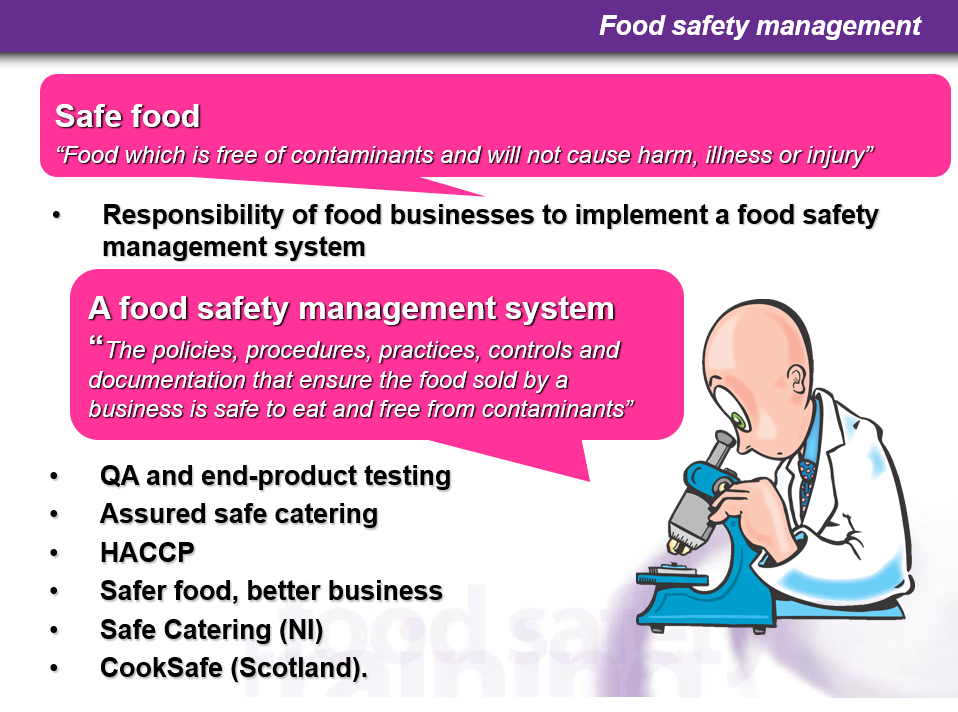Food safety management
What is safe food?
Food which is free from contaminants and will not cause harm, injury or illness. i.e it will not cause food poisoning.
How do we ensure the safety of food?
Food safety management
Legal and moral responsibility for every food business to implement a food safety management system to minimise the risk of food poisoning.
A food safety management system
The policies, procedures, practices, controls and documentation that ensure the food sold by a business is safe to eat and free from contaminants.
Examples of food safety management systems include:
• QA and end-product testing (for manufacture);
• Assured safe catering;
• HACCP; • Safe Catering (NI);
• Safer food, better business; • CookSafe (Scotland);
• good hygiene practice, effective supervision, generic controls and monitoring and periodic inspection.
However, many systems were poorly implemented and had little effect on rising levels of foodborne illness.
Food hygiene
The measures and conditions necessary to control hazards and to ensure fitness for human consumption of a foodstuff taking into account its intended use.
(EC Regulation No.852/2004)
A food business
Any business in the course of which commercial operations, with regard to food or food sources, are carried out (whether for profit or not).
HACCP (Hazard analysis critical control point)
A food safety management system which identifies, evaluates and controls hazards which are significant for food safety.
It requires:
• A multi-disciplinary approach
• Full commitment and involvement of management and workforce
• Consistent/standardised production
• Detailed scientific knowledge.
HACCP should not be seen as an academic exercise or as mountains of monitoring records for enforcement officers to examine during annual inspections.
HACCP should be a set of food safety rules, scientifically validated, implemented by the manager and adhered to by staff.
The staff should be able to demonstrate that they understand and implement those HACCP rules (including controls, monitoring and corrective action) for which they are responsible.
Science and technology and HACCP are continuously evolving.
Practices considered good today may be considered unacceptable tomorrow.
The important thing to remember is that HACCP is a proactive food safety management system which is implemented to improve food safety and reduce the risk of foodborne illness
and injury.
Our levels of knowledge, ability and understanding vary and it is essential that the HACCP system implemented in a food business can be understood and operated by the managers, supervisors and staff within the particular food business.
Results in continuous self-inspection. Documentation provides inspectors with current and past conditions i.e. providing more confidence in the ability of the operation to control food safety.
Implementing the principles of HACCP is a legal requirement for most food premises within the EU.

